Archives
(PRELIMS Focus)
Category: Environment and Ecology.
Context:
- The International Union for Conservation of Nature (IUCN) recently rated Khangchendzonga National Park as “good” in its latest global review of natural World Heritage sites. It is the only Indian park to receive this rating.
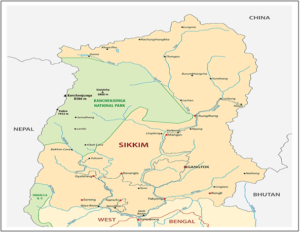
About Khangchendzonga National Park:
- Location: It is located in the north of Sikkim. It lies entirely along the Sikkim-Nepal border.
- Area: It encompasses an area covering 1784 sq.km. It exhibits one of the widest altitudinal ranges of any protected area worldwide. The park has an extraordinary vertical sweep of over 7 kilometres (1,220 m to 8,586 m).
- Part of UNESCO’s MAB: It is a part of the Khangchendzonga Biosphere Reserve (KBR), which is one of the 13 biosphere reserves, based on the UNESCO Man and the Biosphere (MAB) Programme.
- One of the biodiversity hotspots: It is a part of one of the 4 biodiversity hotspots in India (the Himalayas global biodiversity hotspot). The other 3 biodiversity hotspots are the Western Ghats, the Indo-Burma region, and the Sundaland region.
- Uniqueness: KBR is India’s first “mixed” UNESCO World Heritage Site, recognised in 2016 for its combination of natural beauty and cultural importance.
- Home to third highest mountain peak: It is home to Mt. Khangchendzonga, the third highest peak in the world.
- Contains some of the largest glaciers: It has, in total, 18 glaciers, the largest one being Zemu Glacier, one of the largest glaciers in Asia.
- Lepcha tribe: It is one of the very few places where one can find the Lepcha tribal settlements.
- Flora: It mostly contains subtropical to alpine vegetation such as oak, fir, birch, maple, and rhododendron.
- Fauna: It is home to important flagship species such as the snow leopard, Tibetan wolf, red panda, blue sheep, Himalayan Tahr, and mainland serow, among many. It is home to nearly half of India’s bird diversity.
Source:
Category: History and Culture
Context:
- A groundbreaking genomic study led by researchers from Mangalore University and Yenepoya (Deemed-to-be University) has identified a distinct ancestral source in the Koraga tribe that may date back to the Indus Valley Civilisation.
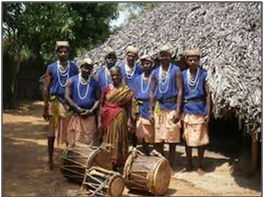
About Koraga Tribe:
- Location: The Koraga is an indigenous tribal community that is basically found mainly in the Dakshina Kannada, Udupi districts of Karnataka and the Kasaragod district of Kerala state.
- Classified as PVTGs: The Koragas are classified as a Particularly Vulnerable Tribal Group (PVTG).
- Population: As per the 2011 census, their total population is 1582, in which 778 were males and 804 females.
- Language: People communicate either in their language, known as Koraga Bhasha, or in Tulu.
- Economy: The Koragas mainly depend on agriculture and forest resources for their livelihoods.
- Culture: They are known for their traditional crafts, such as basket-making, and actively participate in folk dances and rituals that reflect their rich cultural heritage.
- Society: The Koraga community follows a matrilineal family system and a unique clan structure called “bali,” which plays an important role in their social organization. Koragas are led by the most senior person in the village, often known as Mooppan. He ensures the well-being of the members of the community.
- Rituals: Drumming and traditional music are integral to their rituals and community celebrations. Dholu and Voote (Drum and Flute) were two important musical instruments of the Koragas. The rhythmic drum-beating, especially with the “dholu,” is a significant aspect of their cultural identity, used in various ceremonies and gatherings.
- Religious Beliefs: The Koragas follow Hinduism but have distinct tribal religious beliefs and practices. They worship spirits known as “Bhutas” and believe in the power of magic and rituals to ward off evil.
About Indus Valley Civilization:
- Nomenclature: The Indus Valley in the Indian subcontinent was one of the first places where humans settled down and advanced to a highly civilised lifestyle. Its contemporary name comes from its location in the Indus River valley, but it is also known as the Indus-Sarasvati Civilization.
- Discovery: It was in 1924 that John Marshall announced to the world the existence of an ancient civilization in the Indus Valley.
- Area: It encompassed an area of approximately 1,299,600 square km. It covered a considerably broader region than the ancient Egyptian or Mesopotamian cultures did.
- Expanse: It extended from Sutkagendor (in Balochistan, Pakistan) in the West to Alamgirpur (UP) in the East; and from Mandu (Jammu) in the North to Daimabad (Maharashtra) in the South.
- Important sites: The Indus Valley Civilization, situated in the river basins of the Indus and Ghaggar-Hakra, featured several key cities such as Mohenjo-Daro, Harappa, Kalibangan, Lothal, Rakhigarhi, Chanhudaro, Banawali, Dholavira, etc.
- Uniqueness: One of the most outstanding features of the Indus cities was their well-planned town planning. The excavations at Harappa and Mohenjo-Daro have revealed a great deal of evidence of this.
- Economy: Agriculture was the primary employment of the Indus Valley people. They cultivated wheat, barley, peas, and, in some places, rice.
- Art and craft: Most human figurines were handmade and made from bronze, terracotta, steatite, and faience material. The Harappan people were also good craftsmen. They used more copper than bronze. Brick-making and masonry were other important occupations.
- Script: The Indus seals are a unique source available to us to learn about the Harappan culture. Since this pictorial script is yet to be deciphered, our understanding of the Harappans is largely limited to those images used in the script.
Source:
Category: Government Schemes
Context:
- The National Technical Textiles Mission (NTTM) has successfully supported the development of 03 indigenous instruments for testing Convective, Radiant, and Contact (Conductive) Heat Resistance of protective textiles.
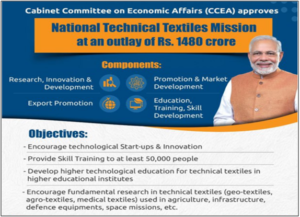
About National Technical Textiles Mission:
- Nodal ministry: NTTM is an initiative of the Ministry of Textiles to promote the growth and development of the technical textiles sector in the country.
- Objective: It aims to position India as a global leader in technical textiles.
- Implementation Period: It was launched for a period from 2020-21 to 2025-26 with an outlay of Rs.1,480 crores.
- Components: The Mission has four components.
- Research, Innovation and Development: Fundamental research is conducted in Council of Scientific and Industrial Research (CSIR) labs, IITs, and other reputable scientific, industrial, and academic institutions.
- Promotion and Market Development: It focuses on market growth, international collaborations, investment promotions, and ‘Make in India’ initiatives.
- Export Promotion: An Export Promotion Council for Technical Textiles has been established to enhance coordination and promotional activities in this sector.
- Education, Training, and Skill Development: It promotes higher-level technical education and skill development in technical textiles, covering engineering, medical, agriculture, and related sectors.
About Technical Textiles:
- Definition: Technical textiles are defined as textile materials and products used primarily for their technical performance and functional properties rather than their aesthetic or decorative characteristics.
- Nomenclature: Other terms used for defining technical textiles include industrial textiles, functional textiles, performance textiles, engineering textiles, invisible textiles, and hi-tech textiles.
- Classification: These products are broadly classified into 12 different categories, viz. Agrotech, Oekotech, Buildtech, Meditech, Geotech, Clothtech, Mobiltech, Hometech, Sportstech,Indutech, Protech, Packtech.
- Applications: They are used in products that help protect people, improve machinery, and solve practical problems, such as in car parts, building materials, medical equipment, and safety gear.
Source:
Category: Economy
Context:
- A six-year-long comprehensive study (2017–2023) by the Indian Council of Agricultural Research (ICAR), and coordinated by the Indian Institute of Soil Science (IISS), Bhopal, has highlighted serious degradation of soil organic carbon (SOC) in India’s arable lands.
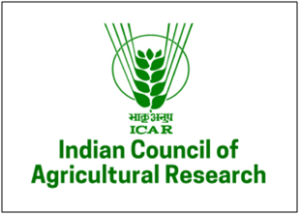
About Indian Council of Agricultural Research (ICAR):
- Nodal ministry: It is an autonomous organisation under the Department of Agricultural Research and Education (DARE), Ministry of Agriculture and Farmers Welfare, Government of India.
- Objective: It is the apex body for coordinating, guiding, and managing research and education in agriculture, including horticulture, fisheries, and animal sciences, throughout the country.
- Establishment: Formerly known as the Imperial Council of Agricultural Research, it was established on 16 July 1929 as a registered society under the Societies Registration Act, 1860, in pursuance of the report of the Royal Commission on Agriculture.
- Headquarters: Its headquarters is located in New Delhi. With 101 ICAR institutes and 71 agricultural universities spread across the country, this is one of the largest national agricultural systems in the world.
- Focus areas: ICAR’s primary mandate focuses on the thematic areas of Crop Science, Horticultural Science, Natural Resource Management, Agricultural Engineering, Animal Science, Fisheries Science, Agricultural Education and Agricultural Extension.
- Significance: The ICAR has played a pioneering role in ushering in the Green Revolution and subsequent developments in agriculture in India through its research and technology development.
- Role in higher education: It has played a major role in promoting excellence in higher education in agriculture. It is engaged in cutting-edge areas of science and technology development and its scientists are internationally acknowledged in their fields.
Source:
Category: Environment and Ecology
Context:
- Bangladesh’s accession to the UN Water Convention has a ripple effect that could cause problems with India after Bangladesh became the first country in South Asia to join the convention.
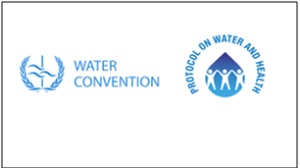
About UN Water Convention:
- Nomenclature: It is also known as the Convention on the Protection and Use of Transboundary Watercourses and International Lakes.
- Adoption: It was adopted in Helsinki in 1992 and entered into force in 1996.
- Amendment: It was originally negotiated as a regional framework for the pan-European region. Following an amendment procedure, since March 2016 all UN Member States can accede to it.
- Legally binding: It is a unique legally binding instrument promoting the sustainable management of shared water resources, the implementation of the Sustainable Development Goals, the prevention of conflicts, and the promotion of peace and regional integration.
- Mandate: It requires Parties to prevent, control and reduce transboundary impact, use transboundary waters in a reasonable and equitable way and ensure their sustainable management. Parties bordering the same transboundary waters have to cooperate by entering into specific agreements and establishing joint bodies.
- Does not replace bilateral and multilateral agreements: As a framework agreement, the Convention does not replace bilateral and multilateral agreements for specific basins or aquifers; instead, it fosters their establishment and implementation, as well as further development.
- Significance: It is a powerful tool to promote and operationalize the achievement of the 2030 Agenda for Sustainable Development and its SDGs.
Source:
(MAINS Focus)
(GS Paper 3: Issues related to Food Security, Biotechnology, and Inclusive Growth)
Context (Introduction)
India’s food policy is evolving from ensuring food security to achieving nutritional security. Functional foods and smart proteins represent a technological and sustainable approach to address malnutrition, environmental degradation, and health challenges in a growing economy.
Main Arguments:
- Functional Foods: These are enriched foods designed to enhance health or prevent diseases—examples include vitamin-fortified rice, iron-rich millets, or omega-3 milk. They employ technologies such as nutrigenomics, bio-fortification, 3D food printing, and bioprocessing. Japan pioneered their regulation in the 1980s.
- Smart Proteins: These include plant-based, fermentation-derived, and cultivated meat sources developed using biotechnology to replace conventional animal-based proteins. Singapore became the first country (2020) to approve cultivated chicken for commercial sale.
- Need for Nutritional Security: Despite economic progress, over one-third of Indian children remain stunted. Rising incomes and lifestyle changes are shifting public expectations from calorie sufficiency to nutrient-rich diets. Nutrition-focused policies can bridge the urban-rural divide and reduce non-communicable diseases.
- India’s Emerging Ecosystem: Under the BioE3 policy, the Department of Biotechnology (DBT) and BIRACsupport innovation in functional foods and smart proteins. Bio-fortified crops like zinc-rich rice (IIRR) and iron-rich pearl millet (ICRISAT) mark key progress. Private players such as Tata Consumer Products and ITCare investing in fortified staples, while startups like GoodDot and Evo Foods lead the smart protein market.
- Global Economic Opportunity: The global plant-based food market could reach between $85–240 billion by 2030. India’s strong agri-base and biotech sector can make it a major exporter while creating employment across agri, processing, and logistics sectors.
Criticisms and Challenges:
- Regulatory Ambiguity: FSSAI lacks a clear framework for novel foods, especially cultivated meat and precision-fermented proteins. Absence of regulation risks consumer mistrust and market misuse.
- Public Scepticism: “Lab-made” foods face social and cultural hesitation in India. Misconceptions about safety and taste may limit acceptance.
- Technological and Skill Gaps: Biomanufacturing requires high-end research, infrastructure, and skilled manpower, which remain limited in India’s agri-food sector.
- Equity and Market Concentration: Without proper regulation, large corporations may dominate, marginalising farmers and small-scale producers.
- Environmental Sustainability: Although smart proteins reduce livestock pressure, their energy-intensive production could offset climate gains if not managed sustainably.
Reforms and Policy Measures:
- Regulatory Clarity: A national novel food framework under FSSAI should define categories, safety standards, and labelling norms for functional and alternative protein products.
- Institutional Coordination: Ministries of Biotechnology, Agriculture, and Health must align policies for nutritional transformation through integrated food value chains.
- Public–Private Partnerships: To scale biomanufacturing, attract R&D investments, and develop indigenous technologies like precision fermentation.
- Workforce Upskilling: Training in biotechnology and food sciences to enable rural participation in new agri-bio value chains.
- Public Awareness Campaigns: Transparent communication, consumer education, and farmer inclusion are essential to build trust and acceptance.
Conclusion:
India’s next phase of food transformation must go beyond calorie sufficiency to nutrition and sustainability. Functional foods and smart proteins can address malnutrition, climate change, and rural employment together—if guided by sound regulation, innovation, and inclusivity. As Shambhavi Naik notes, biotechnology’s benefits must “extend across society” to ensure a truly equitable nutritional future.
Mains Question:
- “India’s food policy must move from food security to nutritional security. Discuss (150 words, 10 marks)
(GS Paper 3 – Environment, Conservation, Climate Change, International Agreements)
Context (Introduction)
COP30 in Belém, Brazil, marks a decade since the Paris Agreement and is being called the “Implementation COP”. It aims to convert global climate pledges into actionable outcomes, focusing on energy transitions, adaptation, biodiversity conservation, and climate finance for developing nations.
Main Arguments
- Implementation COP: COP30 seeks to operationalise commitments through the Global Stocktake (GST)—a five-yearly review under the Paris Agreement—to assess progress on mitigation, adaptation, and finance.
- Thematic Focus: The agenda emphasises six core areas—energy, industry, transport transitions; stewardship of forests, oceans, biodiversity; food system transformation; resilient urban infrastructure; and human development.
- Climate Finance Roadmap: The Baku-to-Belém Roadmap aims to mobilise at least $1.3 trillion annually by 2035, building on COP29’s New Collective Quantified Goal (NCQG) of $300 billion per year. Yet, it remains non-binding and lacks clarity on accountability.
- Adaptation Framework: COP30 is expected to finalise the Global Goal on Adaptation (GGA)—quantifying resilience outcomes, financing needs, and integrating local and indigenous knowledge for region-specific climate adaptation.
- Climate–Nature Nexus: The summit aims to merge biodiversity and climate action through Brazil’s Tropical Forest Forever Facility, incentivising developing nations to protect tropical forests and biodiversity.
- India’s Role: India, leading the G77+China bloc, stresses climate justice and common but differentiated responsibilities (CBDR), pushing developed nations for predictable finance, while advancing domestic initiatives like green bonds, carbon markets, and green budgeting.
Criticisms and Challenges
- Finance Deficit: Despite the NCQG, developing nations argue that $300 billion is insufficient compared to trillions required annually, and the inclusion of “all actors” dilutes CBDR principles.
- Implementation Gap: Many countries have yet to submit updated Nationally Determined Contributions (NDCs)for 2035—covering only 19% of global emissions—reflecting weak ambition.
- Inclusion Concerns: Logistical issues in Belém have limited participation from low-income nations and civil society, undermining equitable representation.
- Loss and Damage Fund: Underfunded since COP28, with less than $1 billion committed against needs in hundreds of billions, weakening trust in developed nations’ pledges.
- Technology and IP Barriers: High costs and restrictive intellectual property rights hinder developing countries from adopting clean and resilient technologies.
Reforms and Way Forward
- Strengthening Climate Finance: Establish binding mechanisms for NCQG disbursal, with transparent tracking of public and private contributions.
- Just Transition Frameworks: Ensure fair energy and industrial transitions through North–South technology partnerships, capacity building, and green skill investments.
- Mainstreaming Adaptation: Localise adaptation policies by integrating traditional practices, water conservation models, and community-led restoration as demonstrated in India.
- Integrated Climate–Biodiversity Planning: Link financing for reforestation, agroforestry, and ecosystem services under one climate–nature investment strategy.
- Accountability Mechanisms: Strengthen GST to ensure measurable progress on NDCs, verified through common transparency frameworks.
Conclusion
COP30 is a crucial turning point—shifting from promises to performance. Hosted in the Amazon, it symbolises the urgency of protecting global commons while ensuring equitable growth. For India and the Global South, it represents both a challenge and an opportunity: to demand climate justice, secure finance, and pioneer inclusive, resilient development pathways.
Mains Question
- Ten years after the Paris Agreement, the early consensus on collective climate action appears fractured by national interests and competitive politics. Examine the reasons and suggest the way forward. (250 words, 15 marks)
